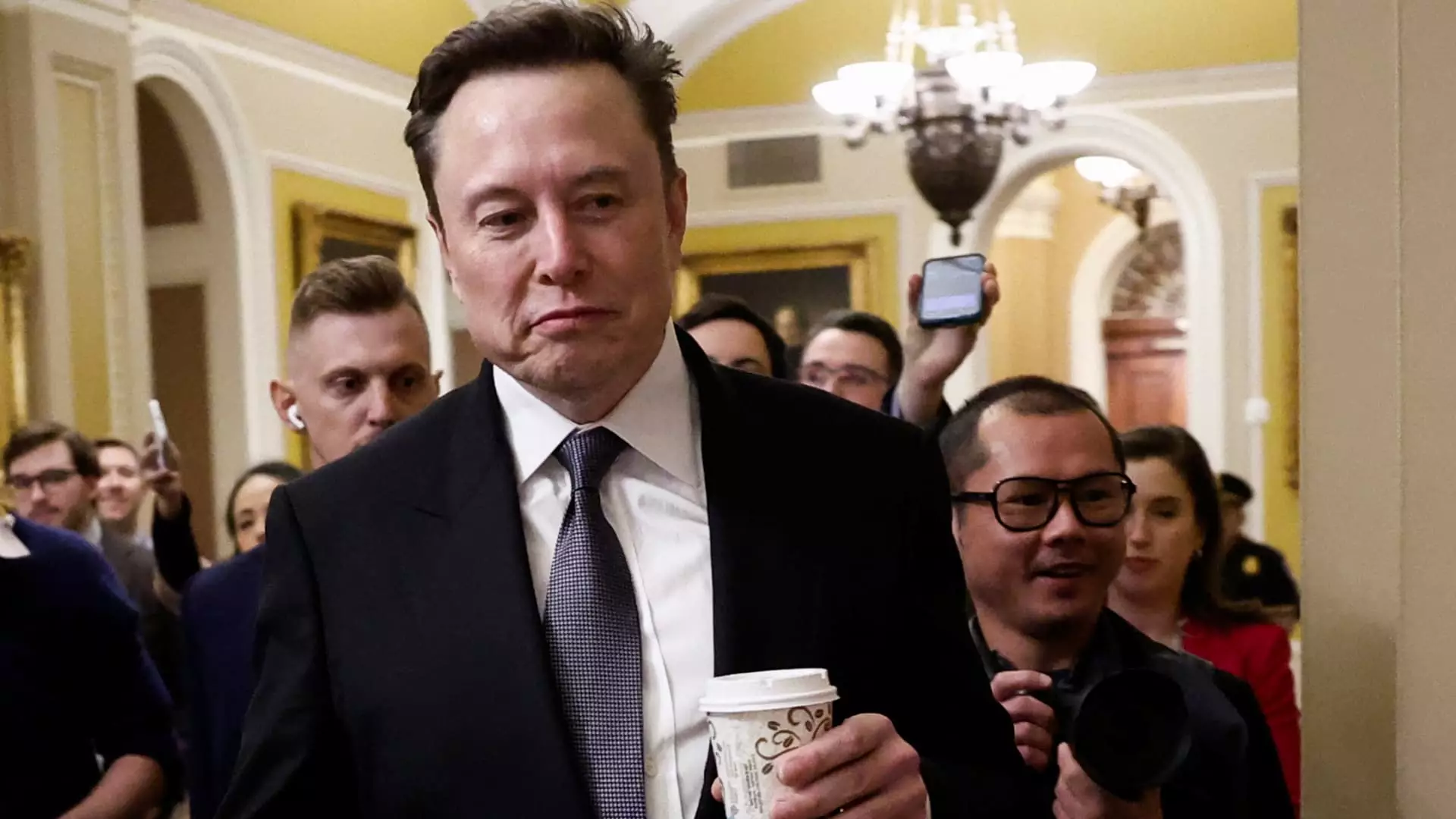The landscape for government-related real estate investments is shifting dramatically, and Easterly Government Properties (DEA) is feeling the pressure. In the wake of the recent U.S. presidential election, the company has witnessed a significant drop in its stock price, a decline of about 12%. This downturn can be primarily attributed to investor apprehension regarding the forthcoming initiatives from the newly formed Department of Government Efficiency (DOGE), an advisory council spearheaded by high-profile entrepreneurs including Elon Musk and Vivek Ramaswamy. With ambitious goals targeting a $500 billion reduction in federal expenditure, the market is rife with speculation about the implications for companies like Easterly that heavily rely on government leases.
Easterly Government Properties operates a portfolio of 100 leases with a staggering 98% of its revenue derived from these government contracts. These properties serve essential functions for various federal entities including the Department of Justice, the Federal Bureau of Investigation, and the Veterans Affairs. CEO Darrell Crate has been vocal about the significance of their properties, asserting that many of these essential services won’t be cut amidst the federal budget slashing efforts. He insists that their facilities are integral to the functions of government agencies that align with national security and public health, such as drug labs working on cases related to controversial substances like fentanyl.
However, the very reliance on government leases has turned into a double-edged sword. While these contracts are stable and typically long-term, the looming possibility of cuts poses a serious threat to Easterly’s revenue stream. Analysts have provided mixed reviews, highlighting that while some aspects of their portfolio are mission-critical, others may not be as secure under a new regime focused on austere spending practices. This volatility complicates Easterly’s investor relations and potentially undermines its financial stability.
In the context of looming financial uncertainties, Easterly continues to offer quarterly dividends of 27 cents per share, resulting in a substantial yield of 9%. While this might attract certain investors, analysts have cast doubt on the sustainability of such payouts. John Kim from BMO Capital Markets has argued that the dividend presents a conflict; while investors may expect consistent returns, the company may need to rein in its expenditures to weather the storm of federal budget cuts. Even analysts who do not hold a bearish stance suggest that decreasing the dividend could stabilize the stock and foster investor confidence in a challenging economic environment.
For Crate, the position is precarious. He acknowledges the necessity for transparency and communication regarding the company’s mission. Rather than diminishing returns, Easterly should highlight its role in supporting credible government functions that could play a crucial role in decongesting financial wastage in federal spending. This narrative is essential for restoring investor confidence during these uncertain times.
The political backdrop is equally complex. Crate’s connections to the Trump administration through his brother, who served as the treasurer for Trump’s campaign, may provide unique access to influencing the administration’s budgeting decisions. However, this relationship has yet to yield positive results, as indicated by the continued decline in stock prices even amidst these connections. It raises questions about whether Easterly can effectively leverage political ties to safeguard its interests or if those connections are overstated against the growing call for reduced government spending.
Moreover, the recent public advocacy by Musk and Ramaswamy for DOGE has laid out a vision to cut government expenditures, which could have unintended consequences for companies like Easterly reliant on federal funds. Their op-ed highlights the apparent disconnect between fiscal responsibility and the needs of mission-critical services, suggesting a challenging navigation ahead for Easterly Government Properties.
As Easterly Government Properties continues to grapple with fluctuating stock prices and investor skepticism, it faces a daunting challenge of demonstrating its value in a climate that increasingly questions government spending. Moving forward, the company must refine its communication strategy to clarify its essential role in government operations while also addressing potential financial sustainability issues. As government efficiency initiatives unfold, the ability of Easterly to adapt will likely determine its long-term viability in the face of a complex and evolving political landscape.

